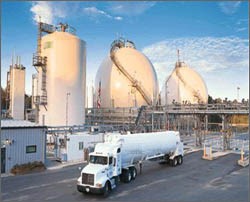-
Analysis finds hydrogen potentially counter-productive if used for cars and heating
Date posted:
-
-
-
Post Author
Patrick LaveryCombustion Industry News Editor
-

The Guardian has reported on research by the Potsdam Institute for Climate Impact Research, which found that the use of hydrogen for cars and domestic heating “risks locking in a dependency on fossil fuels and failing to tackle the climate crisis”. The reasoning is that energy losses in converting renewable electricity to hydrogen via electrolysis, under current make-ups of energy sectors, would be wasteful when the electricity could be used directly to power electric cars and heat homes. If hydrogen was being produced for these uses, it would mean more fossil fuel burning would be needed to make up for the additional electricity demand. At the same time, if hydrogen was being used as a replacement for fossil fuels, then if hydrogen became scarce, it would mean that fossil fuels would again have to be burned to produce the electricity needed.
This does not mean the researchers do not see a role for hydrogen in combatting climate change. Dr Falko Ueckerdt, leader of the research, told The Guardian that the world “should therefore prioritise those precious hydrogen-based fuels for applications for which they are indispensable: long-distance aviation, feedstocks in chemical production and steel production.” Another member of the research team, Prof Gunnar Luderer, added to this by saying “direct electrification should come first to assure a safe future. It is clear that the contribution of e-fuels and hydrogen will be marginal on the timescale of 2030.” With the 2030 timeframe in mind, there is much logic in the conclusions of the analysis, although over the longer term hydrogen is likely to play more of a role in power generation, and this suggests that research and development should continue to be a priority in this decade. Hydrogen Council executive director Daryl Wilson said as much in his response to the research, pointing out in addition that hydrogen could become the most competitive low-carbon solution for some sectors by 2030, for instance steelmaking and long-haul trucking. It seems that both parties are in substantial agreement.
